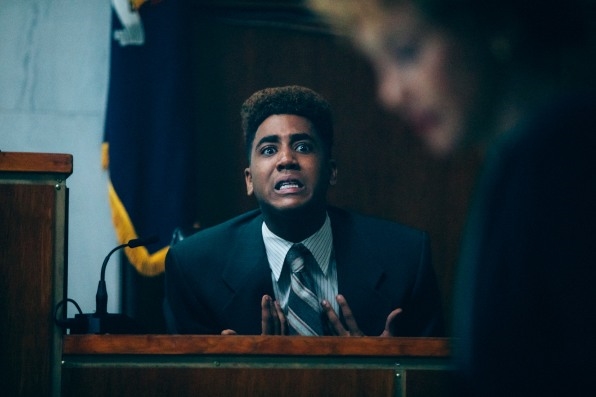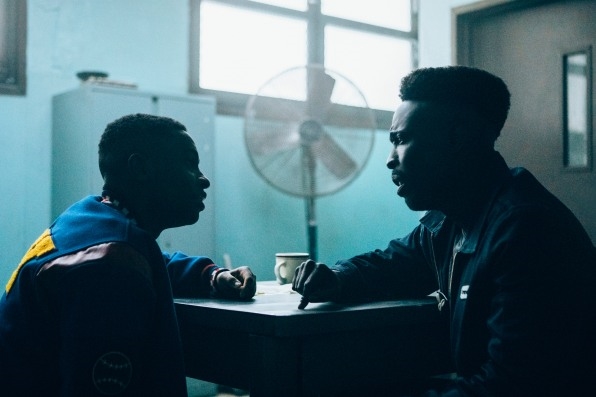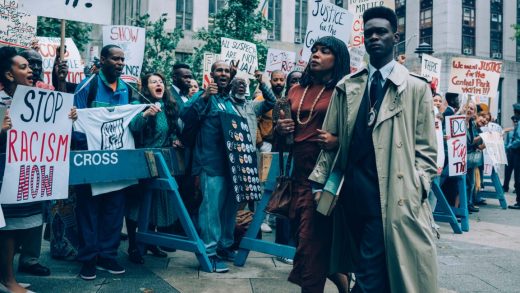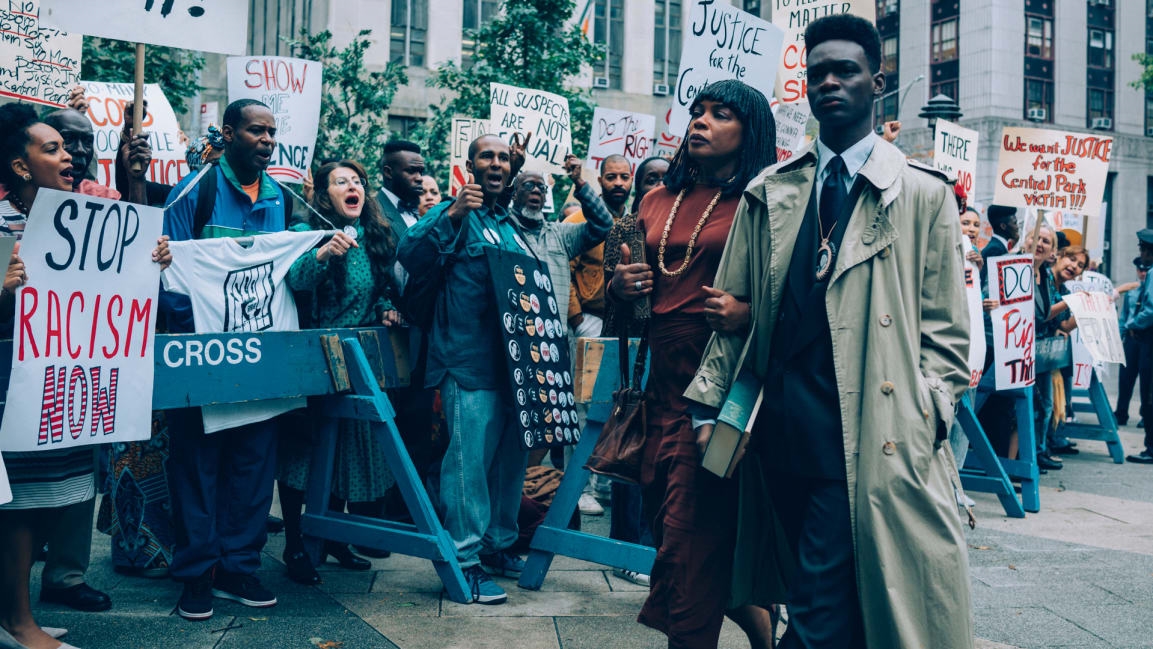Opting out of black trauma: Why I couldn’t finish When They See Us
Netflix’s mini-series When They See Us opens with a group of young black and brown boys ambling toward Central Park for a night out. Things take a turn when the police descend on the scene after getting reports that some kids were causing trouble in the park. Everyone scatters. Some make it out, others are violently apprehended. One kid in particular is pinned down and punched out by a cop.
That was where I first had to press pause.
When I was assigned to cover Ava DuVernay’s retelling of the infamous Central Park Five case, I initially thought I would try for an interview with the cast, cinematographer Bradford Young, or the director herself on what they learned about bringing such a controversial, painful, and still relevant case to life. But it was nearly impossible to appreciate the cinematic storytelling or the acting when it took me more than four hours to finish the first episode, which has a runtime of just 64 minutes. I was already familiar with the story of the five black and brown teenagers who were wrongfully convicted for a rape they didn’t commit in 1989 and spent many years in prison before being exonerated in 2014. And I knew that if there’s anyone who can be trusted with telling a version of the events in a meaningful way, it’s DuVernay, who has herself encouraged viewers to watch at “their own pace.”
“I think it really is going to depend on where you are politically and culturally,” she told the AP. “For some people this is all going to be new, like, ‘Wait, what?’ And for other people it’s deeply felt because they’ve experienced it in their lives as people of color or people who faced injustice.”
I definitely fall into the latter category. There I was on my couch, pausing every 15 minutes to work on whatever else I had on deck, watch mindless videos on YouTube, or just do anything but look at When They See Us. It’s a dilemma I’ve often heard and talked about myself with black people: How do you deal with black trauma as entertainment?
I’ve certainly seen my fair share of true and horrifying moments in black history spun into TV shows and films: Fruitvale Station, 12 Years a Slave, Detroit–the list is long and I’ve seen them all. I felt exactly what you’re supposed to feel: infuriated, frustrated, and sometimes even just a touch hopeful that a change will maybe, possibly, finally come. But with When They See Us, I hit a wall–a wall so thick that I reached out to a psychologist to help me make sense of why a skillfully executed and fast-paced court drama felt like such a slog.
“My first question to you is, why should this be easy to watch?” said Monnica Williams, a psychologist who specializes in black mental health. “These are human beings who have had their lives destroyed for something they didn’t do, at the hands of people that we all pay through our tax money to protect us. So really I think it’s normal and natural and healthy even to be very disturbed by this.”
I wasn’t expecting a glossed-over and cleaned-up version of the Central Park Five story. I think it’s necessary to expose the NYPD’s and DA’s atrocities for what they were. It was about halfway through the first episode that I was able to pinpoint a more direct emotion: I just felt tired. Watching these boys being viciously interrogated and manipulated by the police felt like just another encapsulation of the misery of the black experience in America. The Central Park Five were not the first, nor will they be the last, minorities to experience the gross injustices of racism in the United States. And significant change does require time. However, at this point, I’m feeling an obligation to start opting out of experiences like When They See Us, whether for work or on my own downtime.
The question for TV shows or films like When They See Us always boils down to: Who is this for? In the past, I found that question to be a bit reductive. Art is for anyone who’s able to get some value from it. But when that art is centered on black trauma it becomes more of a nuanced conversation.

[Photo: Atsushi Nishijima/Netflix]
Public displays of black trauma were an integral catalyst for the Civil Rights movement. Televised accounts and portraits of black bodies being hosed and torn by dogs helped to reshape the public consciousness around equality. Emmett Till’s mother made the heartbreaking decision to have an open-casket funeral for her disfigured son to let “the world to see what they did to my baby,” as she said. Rosa Parks later said that was the driving force in her refusal to move to the back of the bus.
Fast-forward to today, with cellphone footage documenting blatant police brutality and gross misuses of power, yet justice never comes. White police officers face few to zero repercussions for their crimes, and the black community walks away with another dead body. If raw and real footage isn’t enough to move today’s consciousness around racism, police, and the prison system, it’s hard to imagine how a film or TV show, even with all the storytelling tools at their disposal, moving the needle in a satisfactory way.
Williams agrees. “If it’s for us, I don’t need to see the cop punching the black kid. I’m happy with the CliffsNotes,” she says. “It’s traumatizing to watch that stuff. And is it for white people? I mean, is it changing their consciousness? Are we changing laws? What’s the fruit of it? Are we actually seeing a shift in the way things are done?
“As a caring, concerned human being, you can’t watch videos of people continually being brutalized and killed without it taking a negative mental health toll on you,” Williams continues. “You’re going to get PTSD if you keep looking at this—and that’s to be expected. Some people just turn off their emotions and they don’t feel anything. And that’s not a way to live your life either because it’s not like you can turn them back on when you feel like it.”

[Photo: Atsushi Nishijima/Netflix]
I’m not arguing that projects like When They See Us shouldn’t be made. On the contrary, it’s heartening to see black stories (traumatic or otherwise) fall in the hands of trusted black storytellers like DuVernay. But I’m also disheartened because I already know what’s on the other side of a miniseries like When They See Us: nothing.
“I think that for it to be important and meaningful, it has to motivate people to make a change. And that means you’re not just sitting back and watching a movie, but you’re being challenged,” Williams says. “You’re basically being forced to ask the question, ‘How did I participate in this?’ Even if I wasn’t there, how am I a factor? How does living my everyday life contribute to this and what do I need to do about it?”
Of course, I could be speaking prematurely. When They See Us could stir meaningful conversations that could influence more protective and effective laws against racial profiling and police misconduct against people of color. But for now, I’m just going to have to “call in black” for this particular assignment—at least for now.
Fast Company , Read Full Story
(20)



